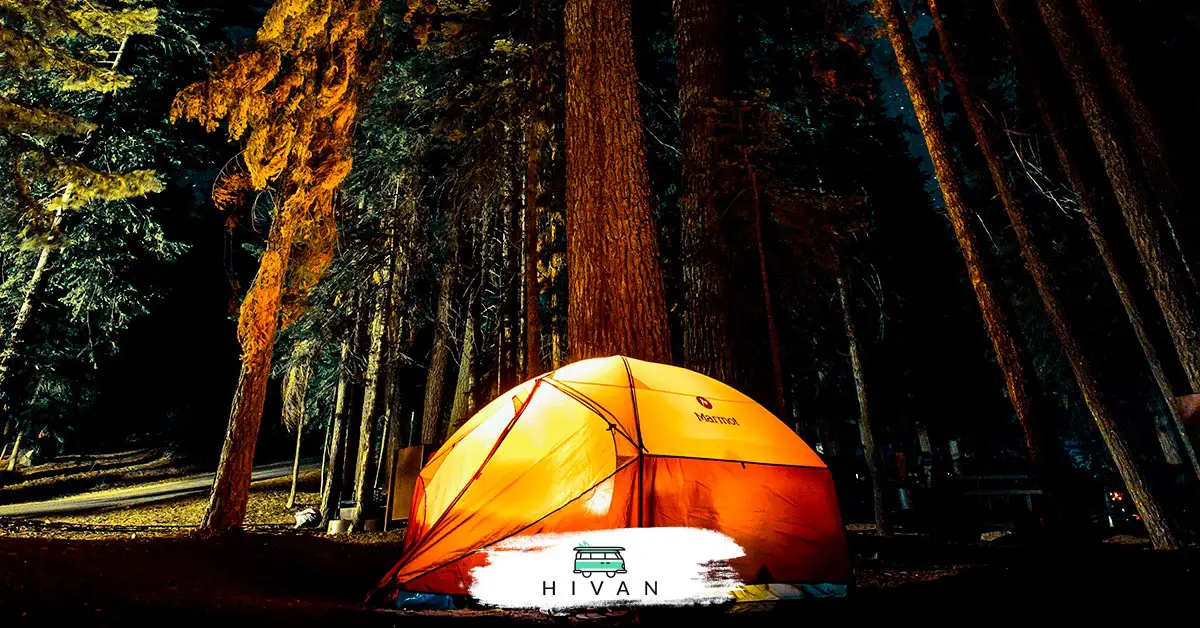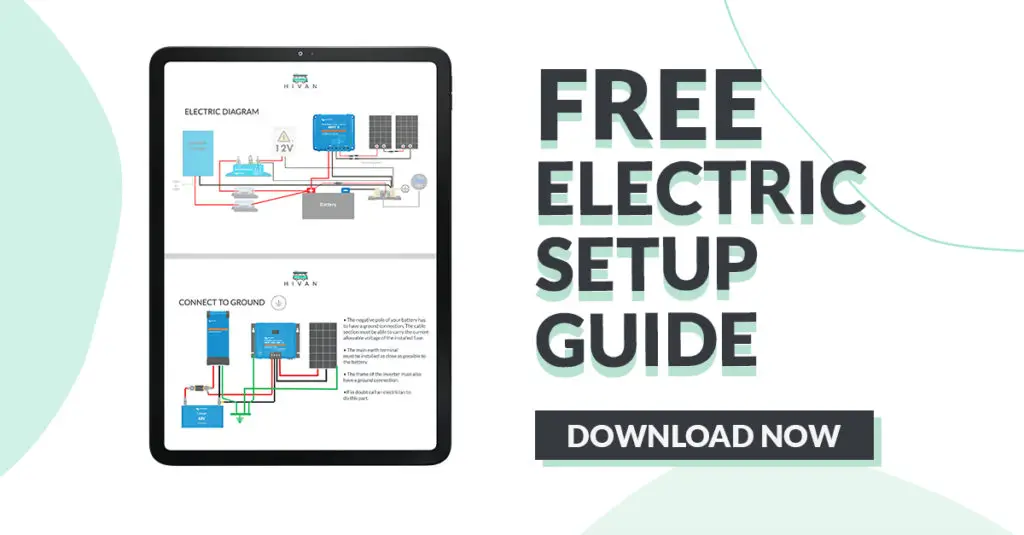Hi-van is supported by its audience. When you purchase using our links, we may earn an affiliate commission (no added cost to you). Learn more
Camping in the woods can be an interesting experience if you’ve never done it before. Whether you bring a lantern, flashlight, or motorhome with installed lights, it’s best to know all about campground etiquette before leaving them on all night. After all, disobeying the rules of the campsite can land you in some trouble.

You should leave one light on while camping, but make sure it’s not shining into another campsite or you might get a complaint. Remember to check if the campground has late-night rules regarding lights-out times, noise issues, and so on. You can leave a lantern or motorhome porch light on.
Throughout this post, we’ll discuss which lights you can leave on when you’re camping, how to know whether or not they’re allowed, and common campground lighting rules. We’ll also talk about how you can safely and effectively keep your campsite illuminated.
What Lights Should You Leave on While Camping?
You should leave on orange, red, and other warm-colored lights while camping. These light colors don’t shine too brightly, which means they won’t disturb other campers, local wildlife, and campground hosts. They’re available for motorhomes, flashlights, lanterns, and many other forms for campers.
Leave No Trace recommends using these warm colors because they reduce light pollution. Most people go camping to escape the cities or towns they live in. They don’t want to deal with bright lights shining through their tents, motorhomes, hammocks, and so on. Choosing a red, orange, or yellow light is a kind gesture to them and yourself.
Another suggestion is to keep your lights inside of your camping shelter. Whether you’re sleeping in a tent or an RV, do your best to have most of the brightness inside. You can also use canopy tents for nearby brightness that doesn’t shine too far outside of your campsite.
Versatile light/fan: Ultra Bright 18 individual low-powered LED bulbs. The fan has high and low settings to provide nice air circulation and lit up the tent nicely. You can orient in so many positions.
The Odoland Portable LED Camping Lantern lets you have a light and turn on a fan at the same time if needed. This is the perfect combination for those who want to be able to see things in the night during Summer. The alternate orange color is great for a campfire appearance. It’s not too invasive, and it mimics a flame.
Before you choose your camping light source, head to the next section to learn about potential campground lighting policies.
Do Campgrounds Have Light Regulations?
Campgrounds usually don’t have light regulations, but most of them will enforce distance policies if your lights are too bright at night. They don’t want you to wake up other campers, so it’s important not to have too many lights on around your campsite. Consider using one or two lanterns or a porch light on your motorhome.
The National Park Service states there usually aren’t lighting regulations at campgrounds, but common courtesy should be taken into consideration. Don’t illuminate other campers’ sites or shine the light into the woods. You might be contacted by the campground host if they hear complaints from other campers.
If there are any regulations, you should be able to find them by the campground’s entry point. Check the general store if you can’t find anything. Worst case scenario, you could just ask your neighboring campers to tell you if the lights are too bright. This also shows you’re considerate of how your lighting situation affects them.
Note: Private campgrounds always have unique rules. While the National Park Service doesn’t have specific rules, that doesn’t mean every campground in the county, state, or country abides by the same set of regulations. It’s always better to ask about lighting policies if you’re worried about causing an issue or breaking the rules.
If you’re still worried about breaking the rules, try the simple step-by-step process below.
How Do You Light a Campsite at Night?
To light a campsite at night, follow these instructions:
- Always use dim lights to illuminate your campsite. Choose an adjustable light source or find something that can dim it a bit. Some people bring ultra-bright lights and put a blank, shade, or umbrella over them at night. This trick lets you pull out the bright light if you need to use it, but it won’t cause issues when it’s covered.
- Choose the best colors to prevent your neighbors from waking up. Remember, orange colors are the top choice for most friendly campers. However, you can also use a soft yellow shade that’s not too bright. The worst choice is usually the high-lumen, ultra-bright white flashlights. Use those for emergencies only.
- Be mindful of which direction your lights are facing. While you might think it’s fine to shine the light away from your campsite, it could be going directly into someone else’s tent or RV. If you’re determined to use a bright light, put something between it and the neighboring campsite.
- Consider using lights with timers that turn off a few hours into the night. Light timers are a perfect way to keep your lights off after you go to bed. Another option is motion sensor lights; Just make sure they’re not too sensitive, or they’ll be triggered by wind and rain.
- Rely on a campfire for your light until you go to bed. Campfires are natural and soft enough not to cause a disturbance. Most campers love seeing campfires, so you likely won’t create a problem. Always extinguish the fire before you go to bed to prevent wildfires from stray embers.
These suggestions will let you light up your campsite without causing a problem for everyone around you. Even if you camp out in the middle of nowhere without other campers, the bright lights could disturb the animals nearby. It’s best to use dim light sources to not make yourself a target for pests, too.
Conclusion
Now that you know all of the rules about leaving lights on while camping, you can decide whether or not you want to. Keep in mind that warm, bright lights can attract pests, including bugs and animals. Don’t forget to point the light away from neighboring tents and RVs, too.
Find this content useful 🙂 ?
Subscribe to our Newsletter and get a free Solar Electric Diagram + shopping list.


